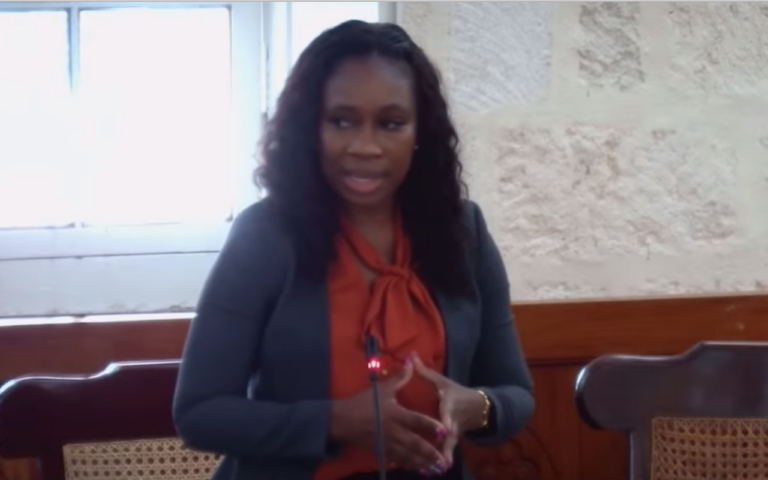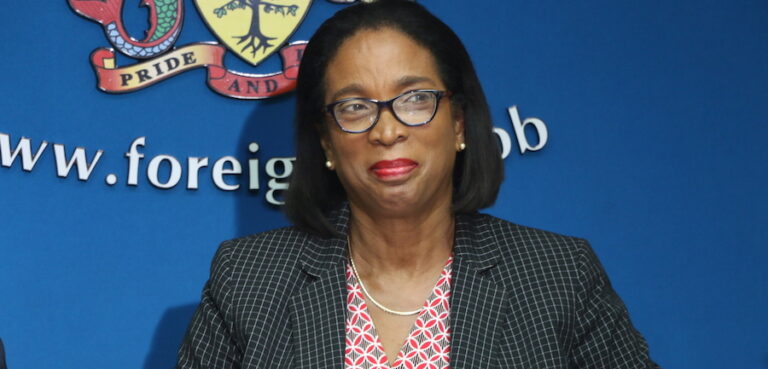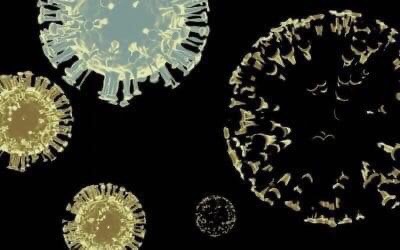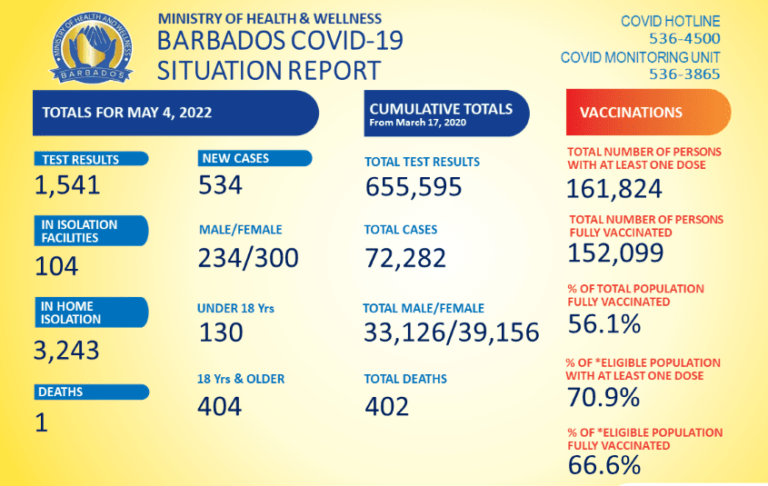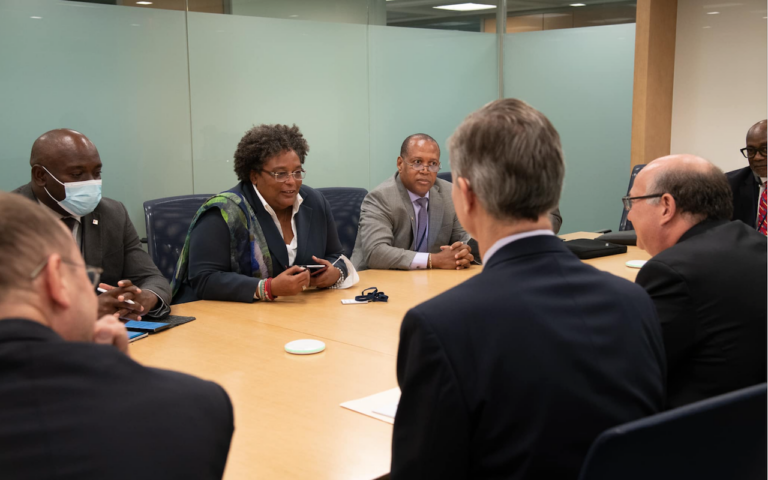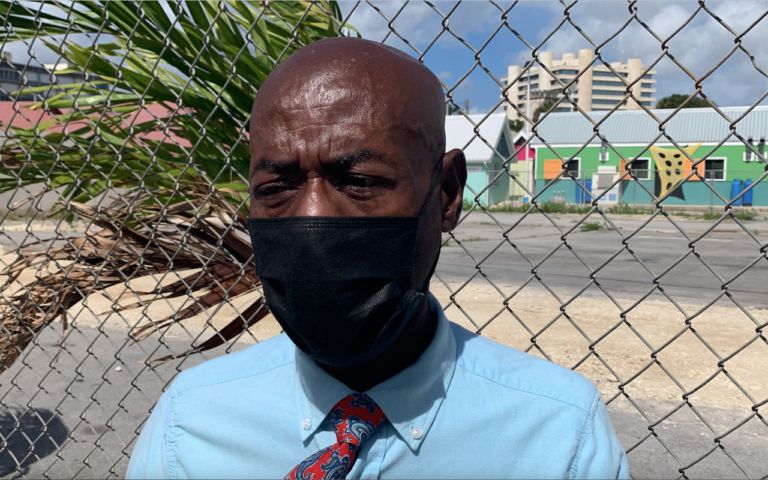![]()
One of the island’s leading economists is warning that if the Government does not make a radical alteration to the Barbados Economic Recovery and Transformation (BERT) programme, citizens should expect further austerity measures in the year ahead.
Director of the Sir Arthur Lewis Institute for Social and Economic Studies (SALISES) at the University of the West Indies (UWI), Cave Hill Campus Dr Don Marshall said on Thursday that a major scale-back of BERT should be one of the key issues Prime Minister Mia Mottley and her delegation ought to insist on with the International Monetary Fund (IMF), during her current talks in Washington with that financial institution, the World Bank and the Inter-American Development Bank (IDB).
Dr Marshall contended that any extension of the IMF-financed programme cannot continue in its ambitious pre-COVID form, and must reflect the post-pandemic realities.
The three-phase five-year package of austerity and stimulus measures aimed at avoiding a devaluation of the Barbados dollar, was introduced by the Barbados Labour Party (BLP) administration when it came to power in 2018, and followed a rapid post-election visit by an IMF team to establish the levels of support and actions necessary to address the dire economic state of the economy.
At that time, Prime Minister Mottley had said the recovery and transformation plan was carefully balanced, would reduce the fiscal deficit in a full fiscal year by $183 million, and would raise the primary surplus from four per cent to almost six per cent. Combined with a further $200 million of fiscal adjustment in phase 2 and 3, the fiscal consolidation before debt restructuring was projected to be $330 million when the measures were in full force. This, Mottley said, would reduce the country’s $15 billion national debt to sustainable levels in five years.
But Dr Marshall has argued that the transformation aspect, in particular, must now take other critical challenges into consideration in order to be relevant in a post-COVID situation.
“I think the BERT programme needs to be scaled back in relation to the ambitious targets that were set out for the period 2018 when we were in the period of the pre-pandemic. So the BERT programme must reflect the fact that the climate change crisis continues, the pandemic continues, and the Ukraine invasion means a worsening of prospects.
“So, rather than a switch to austerity measures which will bring more pain, there should be some attempt to persuade the Fund that the BERT programme has to have some expansionist policies that would involve a mixture of relief and stimulus to get the economy going, to get the small business sector revived by funding their innovation initiatives and so on,” the economic expert told Barbados TODAY.
Dr Marshall further suggested that there is need for investment in innovation and research that could assist the small business community, which would help the country become more self-sufficient.
“Anything less would be to default on sovereignty, and just to capitulate on the need for greater austerity is to proceed in a manner that is ignorant of how much the world has in fact changed in the last couple of weeks. This post-pandemic [environment] is not about a return to pre-pandemic time. In fact, we can argue that we are in an era of a great unsettling,” he stated.
The university academic added: “So I don’t know how, as we move towards a great unsettling, that Barbados is returned to a fiscal consolidation programme that is pre-COVID and pre the environment that we are in right now.”
The SALISES head also believes that critical to the discussions which the Prime Minister is having in Washington is the need for some policy space in order to enact the post-pandemic BERT initiative.
He cautioned that with the ongoing Russia-Ukraine conflict, which is impacting Barbados and the rest of the Caribbean, food security must be top priority.
“We need to contain as much as we could the impact of import inflation. So, rising cost of fuel, rising cost of commodities, meat, feed, etcetera, means that Barbados has to navigate the rapids of the current crises with some policy space to manoeuvre.
“And so, the Mottley administration would be working with the IMF to ensure the IMF recognises that we want to pursue fiscal consolidation, we want to exercise fiscal discipline, but it is constrained to so do, at least in the direction of trying to achieve the ambitious target of working towards a fiscal surplus in excess of three to five per cent,” Dr Marshall said.
Although the BERT plan is scheduled to cover up to 2023, the Extended Fund Facility (EFF) for Barbados under which the local programme is financed, ends this year.
In December 2021, the IMF’s executive board concluded its sixth review of the EFF arrangement for Barbados, paving the way for the Government to draw down about US$24 million, bringing total disbursements to the equivalent of approximately US$425 million.
The four-year extended arrangement under the EFF was approved on October 1, 2018, for a total US$465 million.
On her Facebook page on Thursday, Prime Minister Mottley announced that she had some “productive” meetings with the new Executive Director at the IMF with responsibility for the Caribbean, Philip Jennings and the new IMF Director for the Western Hemisphere, Ilan Goldfain.
“And of course,” she went on, “I was able to reconnect with those who were involved at the beginning of the BERT programme.”
The Barbadian leader’s itinerary also includes meetings with US Treasury officials, Congresswoman Barbara Lee, a Democratic member of the House of Representatives from California, and former US Senator Chris Dodd.
She is also meeting with Samantha Powers, administrator of USAID, the global aid-dispensing arm of President Joe Biden’s administration, and is scheduled to attend a reception with members of the Bajan diaspora in Washington DC, Maryland, and Virginia. emmanueljoseph@barbadostoday.bb
The post Marshall: BERT must take into consideration the COVID-19 reality appeared first on Barbados Today.

